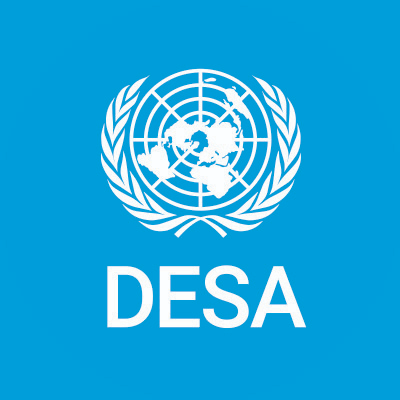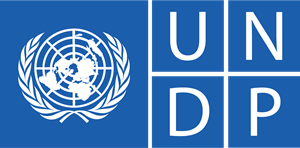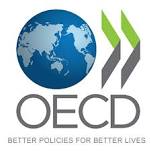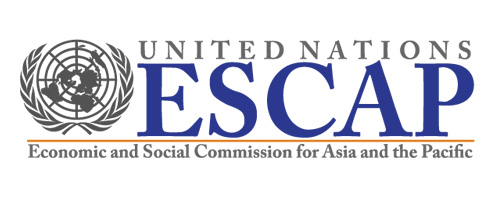Result of Service
In close collaboration with UNSD, and under the guidance of KNBS and NDOC, the consultant is expected to develop a common data catalogue and profile report (also referred to as a “data mapping”) of available data produced by the National Statistical System (NSS) that is potentially relevant to estimate the direct effects of disasters on GDP and on populations (such as direct economic loss, number of deaths, missing persons and persons affected by disasters). The consultant is expected also to assess existing data collection mechanism and platforms and to make recommendation for improved compilation of disaster-related indicators in Kenya, particularly SDG 1.5.1 and 1.5.2. Expected outputs and delivery dates By 1 January 2026 • Concept note for mapping, describing the methodology of the work, execution schedule, and key actors of potential interest (Output 1) By 15 February 2026 • A draft disaster data catalogue and profile report with the presentation of the NSS actors consulted and submit it for review and validation by KNBS, NDOC and UNSD (Output 2) • Presentation to key stakeholders for review and feedback (Output 3) By 31 March 2026 • Final disaster data catalogue and profile report, including recommendations for strengthening and standardizing disaster data collection mechanisms and tools, and ensuring consistency and comparability across agencies and jurisdictions (in close consultation with national stakeholders and under UNDRR guidance to align with global standards). The report will also identify a preferred national or open-source platform (such as the Data Tracking System) to support data management and reporting (Output 4) • Final report on the progress of the activities, including practical steps for building national capacity to generate, update, and institutionalize SDG 1.5.1 and 1.5.2 (Output 5) Performance indicators • A clearly defined methodological approach. • Quality of the meeting materials and documentation provided with every output. • Degree to which reports are reader-friendly, concise, clearly structured and written • Timeliness of delivery of outputs
Duties and Responsibilities
The Data For Now initiative (Data4Now), co-led by the United Nations Statistics Division (UNSD), the United Nations Development Programme (UNDP), the World Bank, the Global Partnership for Sustainable Development Data (GPSDD), and the Sustainable Development Solutions Network (SDSN), aims to develop countries’ capacities to deliver the information needed by local and national policy and decision-makers to achieve the 2030 Agenda. To this end, it supports members of the national statistical systems in participating countries to collaborate more effectively with local, national, and global partners from intergovernmental organizations, academia, civil society, and the private sector. As part of the implementation of the Data4Now initiative, the project will support, through various trainings and advisory consultancies, the development of capacities to (1) use innovative sources, technologies and methods for the streamlined production and dissemination of better, more timely and disaggregated data for sustainable development and (2) make analytic insights derived from them readily available to policy and decision-makers. In the context of Kenya’s Vision 2030, the National Disaster Risk Management Strategy 2025-2030, the Fourth Medium Term Plan 2023-2027, the Kenya-Anticipatory-Action-Roadmap 2024 to 2029 and the Bottom up Economic Transformation Agenda (BETA), data on disasters is increasingly required to inform planning and resource allocation in the area of disaster risk reduction and management and to contribute to monitoring progress towards the Sustainable Development Goals (SDGs) and the Sendai Framework for Disaster Risk Reduction (SFDRR) 2015–2030. The Kenya National Bureau of Statistics is established under the Statistics Act (Cap 112), as the principal government agency for the collection, compilation, analysis, publication and dissemination of statistical information, and the coordination of the national statistical system, and for connected purposes. The KNBS is responsible for maintaining and updating the National Indicator Framework for the Sustainable Development Goals in Kenya. The National Disaster Operations Centre (NDOC) was established in 1998 to serve as a permanent entity coordinating disaster management in Kenya. NDOC is responsible for monitoring disasters, mobilizing and coordinating national resources, and reporting on disaster impacts. In Kenya, statistics on people affected by disasters, specifically SDG Indicator 1.5.1, which measures the number of deaths, missing persons, and directly affected individuals attributed to disasters per 100,000 population, are currently outdated and inconsistently reported. The most recent data presented in the Voluntary National Review (VNR) dates back to 2021, with ongoing efforts through 2023 to improve data availability. Regarding SDG Indicator 1.5.2, which tracks direct economic losses attributed to disasters as a percentage of GDP, relevant data exist from various sources, including the National Disaster Management Unit (NDMU), the National Disaster Operations Center (NDOC), the Kenya Meteorological Department (KMD), the Kenya Space Agency (KSA) and the Kenya National Drought Management Authority (NDMA). However, the country lacks a specific disaster information management system with a reliable database, and the available data is often incomplete due to inconsistent loss reporting and the absence of standardized valuation methods. Additionally, disaster data requires collaboration with sectoral entities such as agriculture, industry, public works, tourism, and others, and in Kenya this remains an area with significant gaps. This is particularly evident for economic loss data, where information on damage to productive assets and infrastructure is often collected by sectoral agencies rather than disaster management authorities. Moreover, estimating losses depends on sector-specific costing methodologies. Consequently, economic loss data is not published regularly in Kenya, and KNBS has yet to calculate and report on SDG Indicator 1.5.2. Considering these challenges, KNBS, in close consultation with national stakeholders, has identified and prioritized these areas to be supported under the Data for Now initiative. Additional sources like data from the KMD, satellite data from the KSA or emergency reports from the Kenya Red Cross, Civil Society Organizations (CSOs) and Non-Governmental Organizations (NGOs), could help fill gaps, as well as efforts supported by UN agencies and other technical partners, such as the United Nations Office for Disaster Risk Reduction (UNDRR), the United Nations Environment Programme (UNEP), the Food and Agriculture Organization of the United Nations (FAO), the World Food Programme (WFP), United Nations Development Programme (UNDP), and United Nations Entity for Gender Equality and the Empowerment of Women (UN Women). In this context, in order to effectively estimate the effects of disasters on GDP and population within the scope of the two SDG indicators mentioned, UNSD seeks to engage a national expert/consultant to: 1. Strengthen coordination among national entities working on disasters data. It is essential, for example, to agree on official definitions, costing units for the economic valuation of damages and losses, and relevant taxonomies for disaggregation. 2. Standardize the methodology and tools for disaster data collection and develop reporting templates to ensure consistency and comparability across agencies and jurisdictions, in close consultation with national stakeholders, and under UNDRR guidance to align with global standards. 3. Improve the quality, timeliness and use of disaster data for evidence-based decision-making. 4. Integrate disaster data more effectively with existing systems such as the Health Management Information System and other sectors. 5. Develop capacity for the calculation and estimation of disaster-related indicators, particularly SDG 1.5.1 and 1.5.2.
Qualifications/special skills
An advanced university degree in economics, statistics, mathematics, environmental sciences, social sciences or a related field, with five (5) years of experience in data analysis and/or data management is required. A bachelor’s degree and two additional years of experience may be accepted in lieu of an advanced degree. Experience working with the national statistical system in Kenya, with a particular focus on disaster data. Experience working with data disaggregated by geography, sex and specific population groups of interest for sustainable development. Experience working on issues relevant to environmental change and/or disaster risk reduction/management.






